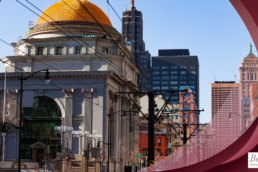
On Friday, January 27, President Trump signed an Executive Order halting visa issuance to refugees for 120 days (and for Syrians indefinitely), and stopping immigration from seven predominantly Muslim countries for 90 days. These countries include: Iraq, Syria, Iran, Libya, Somalia, Sudan and Yemen.
Trump’s order took effect immediately, leaving many foreign nationals and green card holders stuck at overseas locations or U.S. airports.
Following the order, protests occurred at airports nationwide, and lawsuits were triggered.
- A federal judge in the Eastern District of New York issued the first order, granting a stay of removal preventing deportation for individuals with valid visas and approved refugee applications affected by the EO. Attorneys have filed a request for clarification on whether this order applies nationwide.
- The next decision came out of a federal court in Massachusetts — it went a bit further and barred federal officials from detaining or removing individuals subject to the EO.
- In a case filed in Virginia, the court ordered federal officials to provide lawyers with access to “all legal permanent residents being detained at Dulles International Airport” and barred officials from deporting covered individuals for the next seven days.
- In a case out of Washington State, the federal judge barred the federal government from deporting two unnamed individuals from the United States.
On Sunday, January 29, the Department of State issued a statement stating only that the agency “will comply with judicial orders.” More clarity was provided by Secretary Kelly of the Department of Homeland Security, who released a press statement later in the evening, clarifying that the temporary ban would not apply to those with green cards granting them permanent residence in the United States. As of Sunday evening, officials said no one was being held at American airports, although lawyers said they believed that dozens were still being detained.
White House officials cited that in the first 24 hours of the Executive Order being issued, about 109 travelers (LPRS and visa holders) were detained out of the 325,000 who typically enter the United States in a day. As of Sunday evening, the Department of Homeland Security said 392 green card holders had been granted waivers to enter. This count did not include the number of visitors who remained overseas now unable to travel.
At this current time, all travelers who have nationality or dual nationality of Iran, Iraq, Libya, Somalia, Sudan, Syria and Yemen are not permitted to enter the U.S. for 90 days, or to be issued an immigrant or non-immigrant visa. This includes those who share dual nationality with allied countries, including the UK. However, the government has indicated that dual nationals of Canada are not affected, and they will be treated as citizens of Canada.
- Clients who are is currently IN the United States with plans for international travel — please call our office immediately if you believe you may be affected by the Executive Order.
- Clients who are currently OUTSIDE the United States who believe they may be affected by the travel ban — please call our office immediately prior to reentering the U.S.
Berardi Immigration Law is closely following the Executive Order and subsequent lawsuits. We will continue to provide updates on this matter.
Ready to have Berardi on your side?
Whether you’re a business looking to hire or a professional hoping to relocate, immigration law can be complicated. But you don’t have to do it alone. Put our experience to work for you.


